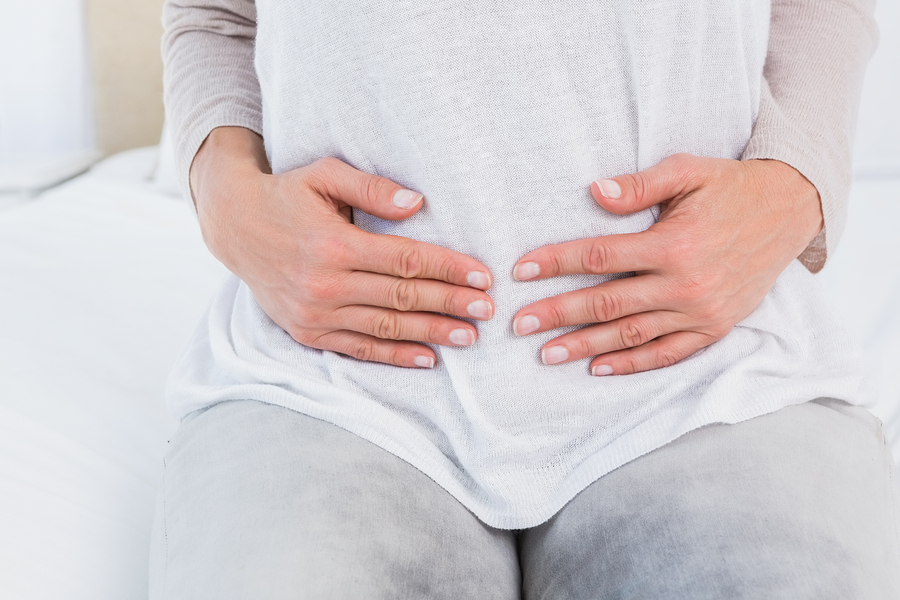Noticed a change in your bowel movements? It could be a sign of IBS…
Sufferers of irritable bowel syndrome (IBS) will tell you that the symptoms can be painful and often embarrassing to live with. The telltale bloating, cramps and frequent toilet trips can rear at any time, wreaking havoc on the digestive system.
Thousands of people in the UK have been diagnosed with this common digestive order, and researchers believe that as many as two in 10 people are currently living with IBS.
Been up since 6am and it’s only now that I’m feeling settled after numerous visits to the bathroom through the course of the day. Some days the #IBS takes that last bit of hope away from me & leads me to a very dark place.
— Huddle-Duddle (@huddle_duddle) March 24, 2018
Not sure exactly what it is or how to tackle the symptoms? Dr Ann Robinson, lead GP at Bupa Health Clinics, reveals more about the causes, warning signs and treatments…
What exactly is IBS and who gets it?
IBS affects 10-15% of the worldwide population, but because it’s not the type of topic many people feel comfortable discussing, lots of us are still confused about what it is and why we get it. “Irritable Bowel Syndrome is a long-term condition that affects your digestive system,” explains Robinson. “It causes pain or discomfort in your tummy, and varying changes in your bowel habits.” Robinson says that It can develop at any age, but the first symptoms usually start appearing between the ages of 20 and 30 years old. “Women are twice as likely to get it as men,” she adds.

IBS affects as many as two in 10 people in the UK
What are the symptoms to look out for?
There are a number of telltale unpleasant signs of IBS that should prompt you to visit your GP. “Some of the most common symptoms include bloating, wind or discomfort in your abdomen, which can often be felt on the left-hand side,” says Robinson. “This discomfort can vary from a sudden sharp pain to a constant dull ache, and the pain may ease after going to the toilet. For some, it may also get worse after eating.”
Cancelled my night out with friends as my #ibs horrible . Staying on sofa.
— sarah chapman (@sarahjchapman) March 23, 2018
Erratic changes to your bowel movement is also another clue that something isn’t right in your gut. “Your stool may vary in consistency and can alternate between constipation and diarrhoea,” says Robinson, adding: “Sometimes you may need to go to the toilet urgently, and at other times you may have problems going.” Many sufferers describe accelerated bowel transit as a significant source of stress, with the fear of a a sudden onset of diarrhoea causing anxiety about public outings.

Erratic bowel movements can cause be a cause of stress and anxiety for many sufferers
“IBS symptoms can come and go; you may not have any symptoms for months and then get a flare-up,” says Robinson. “It’s a good idea to keep a symptom diary and share it with your GP.” She says that you should note down what foods you have eaten, how you are feeling at the time of a flare-up, as well as the symptoms you are experiencing. Together with your GP, you can then use the findings to determine the foods and emotions that might trigger the symptoms, and decide which treatment is right for you.
What actually causes IBS?
“It’s still unclear why some people develop IBS, but it’s thought that it may be caused by a variety of factors,” says Robinson. In some cases, it could all be down to a miscommunication between the brain and the intestinal tract. “This can cause you to have abnormal muscle contraction or spasms, which often causes the cramping pain,” she explains. “The spasms may speed the passage of stool, causing diarrhoea, or they may slow it down, causing constipation.”
IBS can also be caused by an intolerance to certain foods, particularly those high in FODMAPS – “tiny carbohydrates that are found in certain foods like wheat and beans, that the body finds difficult to break down”.
Robinson notes that irritation to the bowel or digestive system, for example – after an infection such as gastroenteritis or food poisoning, could also trigger the symptoms, while some researchers believe that IBS may be genetic.
“You may find your symptoms get worse after being stressed, after eating certain foods or if you’re taking certain antibiotics,” she adds. “Again, it’s a good idea to make a note of these things to help figure out what’s contributing to your IBS flare-ups.”
How is it diagnosed?
If you’re experiencing anything unusual with your stomach or bowel movements, get it checked out by your doctor. “IBS is usually diagnosed by taking a detailed history of your symptoms.” says Robinson. “It can’t be confirmed with a test, however, your GP may suggest you have some blood tests, provide stool samples and possibly a colonoscopy to rule out any other serious conditions.”
What treatments are available?
Unfortunately, there is no cure for IBS, however, changes to your diet and lifestyle may help ease the uncomfortable symptoms.
“Everyone is different and certain foods that will affect one person may not affect another,” says Robinson. “However, generally, I’d recommend you try eating regular meals cooked or prepared from fresh produce, and don’t rush when you’re eating; stay hydrated and aim to have at least eight cups of fluid a day.”
Avoiding fatty, processed or reheated foods might help to regulate your bowel movements, and you should also limit the amount of caffeine you have.
“If stress triggers your IBS, consider some relaxation techniques like meditation or yoga,” says Robinson. “Exercise can also help reduce your flare-ups too.”
If you find that diet and lifestyle changes are not helping manage your IBS, there are medications that can help. “These vary depending on your symptoms,” notes Robinson, “so talk to your pharmacist or GP before taking them.”
The Press Association
Latest posts by The Press Association (see all)
- Maple Cinnamon Granola - January 8, 2025
- 8 things your feet can tell you about your health - January 8, 2025
- 9 ways to look after your emotional health better in 2025 - January 7, 2025
- EastEnders fans to vote on storyline for the first time in 40th anniversary week - January 7, 2025
- Aldi beats rival Lidl as cheapest supermarket of 2024 - January 6, 2025





















